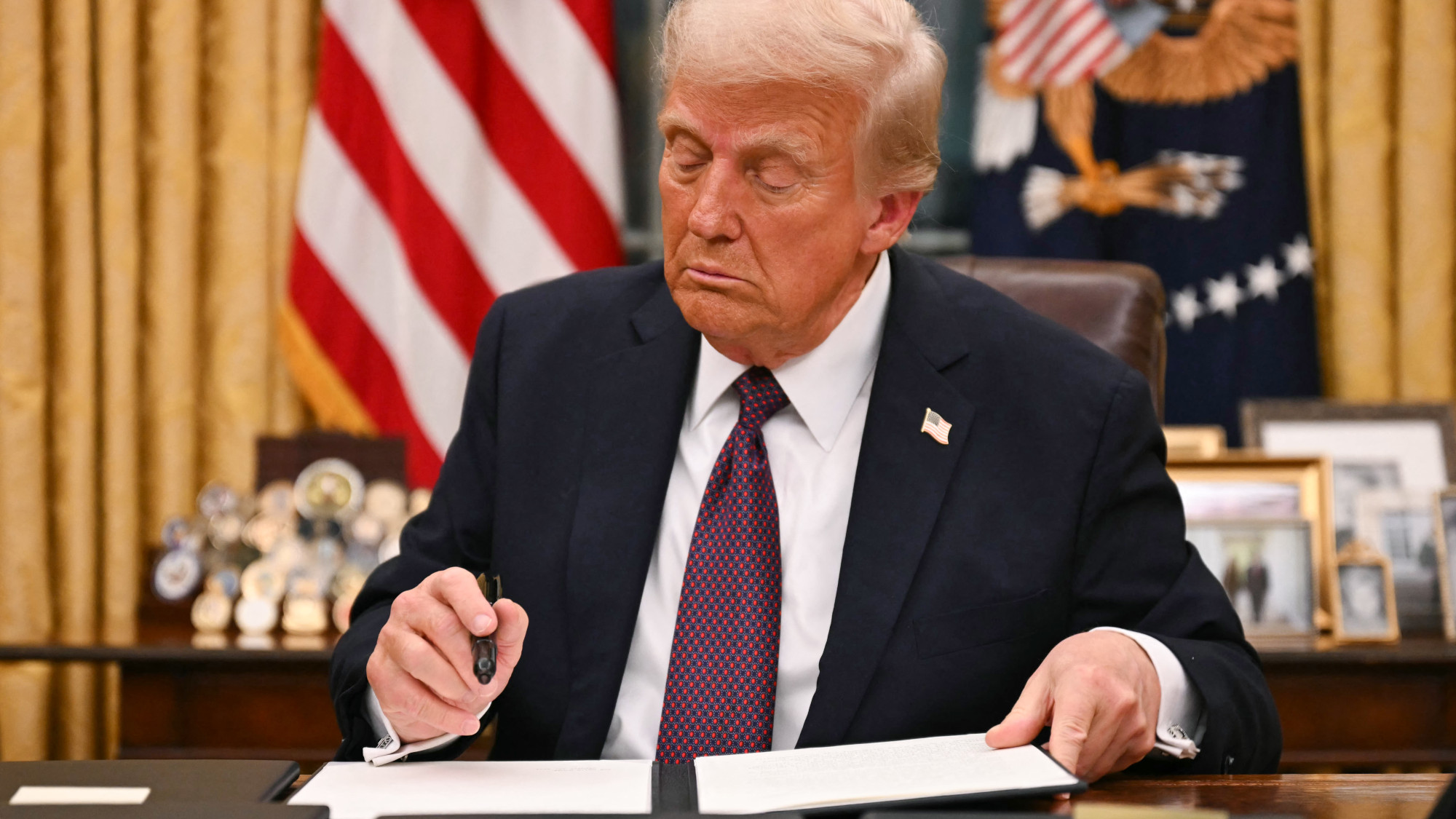Born this way
'Born here, citizen here' is the essence of Americanism


A free daily email with the biggest news stories of the day – and the best features from TheWeek.com
You are now subscribed
Your newsletter sign-up was successful
Of the flurry of executive orders that President Donald Trump signed on his first day in office, there is one that I find most troubling: the effort to cancel birthright citizenship. The understanding of the 14th Amendment's grant of citizenship to "all persons born and naturalized in the United States, and subject to the jurisdiction thereof" has been stable for more than a century and a quarter.
The key test came in 1898, when a Chinese-American (though back then the term would not have existed) named Wong Kim Ark was barred from re-entering the United States after a visit to China. Ark had been born in San Francisco to parents who could not become citizens because of the Chinese Exclusion Act. The U.S., under President William McKinley, argued that meant Ark was not eligible for citizenship himself. The Supreme Court ruled that, whatever the status of his parents, Ark was a citizen of the United States.
It was an admirably prescient decision: While it took until 1943 for the blatantly bigoted Chinese Exclusion Act itself to be repealed, the justices of the late 19th century saw clearly that the way forward for the U.S. was to stick with the basic precept that those born on U.S. soil are Americans, full stop. This is not the typical way of the world. Most countries, including much of Western Europe, have significant restrictions on who can automatically get citizenship at birth; Ireland even eliminated unrestricted birthright citizenship in 2004.
The Week
Escape your echo chamber. Get the facts behind the news, plus analysis from multiple perspectives.

Sign up for The Week's Free Newsletters
From our morning news briefing to a weekly Good News Newsletter, get the best of The Week delivered directly to your inbox.
From our morning news briefing to a weekly Good News Newsletter, get the best of The Week delivered directly to your inbox.
Yet if there was ever an issue on which to say, "We'll just do it our way," this is it. The U.S. does have a legitimate interest in controlling the border; the redefinition of every border crosser as an "asylum seeker" has created a genuine crisis. But it is not one to be solved by visiting the immigration sins of the parents on another generation — especially with an executive order of showy symbolism and deeply dubious constitutionality. "Born here, citizen here," is the very essence of American exceptionalism. I would wager that today's Supreme Court, like that of 1898, will affirm that. But I am saddened that after all this time it is again being put to the test.
This is the editor's letter in the current issue of The Week magazine.
A free daily email with the biggest news stories of the day – and the best features from TheWeek.com
Mark Gimein is a managing editor at the print edition of The Week. His work on business and culture has appeared in Bloomberg, The New Yorker, The New York Times and other outlets. A Russian immigrant, and has lived in the United States since the age of five, and now lives in Brooklyn with his wife and son.
-
 What are the best investments for beginners?
What are the best investments for beginners?The Explainer Stocks and ETFs and bonds, oh my
-
 What to know before filing your own taxes for the first time
What to know before filing your own taxes for the first timethe explainer Tackle this financial milestone with confidence
-
 The biggest box office flops of the 21st century
The biggest box office flops of the 21st centuryin depth Unnecessary remakes and turgid, expensive CGI-fests highlight this list of these most notorious box-office losers
-
 ‘Those rights don’t exist to protect criminals’
‘Those rights don’t exist to protect criminals’Instant Opinion Opinion, comment and editorials of the day
-
 Trump’s EPA kills legal basis for federal climate policy
Trump’s EPA kills legal basis for federal climate policySpeed Read The government’s authority to regulate several planet-warming pollutants has been repealed
-
 House votes to end Trump’s Canada tariffs
House votes to end Trump’s Canada tariffsSpeed Read Six Republicans joined with Democrats to repeal the president’s tariffs
-
 Bondi, Democrats clash over Epstein in hearing
Bondi, Democrats clash over Epstein in hearingSpeed Read Attorney General Pam Bondi ignored survivors of convicted sex offender Jeffrey Epstein and demanded that Democrats apologize to Trump
-
 ‘The mark’s significance is psychological, if that’
‘The mark’s significance is psychological, if that’Instant Opinion Opinion, comment and editorials of the day
-
 Judge blocks Trump suit for Michigan voter rolls
Judge blocks Trump suit for Michigan voter rollsSpeed Read A Trump-appointed federal judge rejected the administration’s demand for voters’ personal data
-
 US to send 200 troops to Nigeria to train army
US to send 200 troops to Nigeria to train armySpeed Read Trump has accused the West African government of failing to protect Christians from terrorist attacks
-
 Grand jury rejects charging 6 Democrats for ‘orders’ video
Grand jury rejects charging 6 Democrats for ‘orders’ videoSpeed Read The jury refused to indict Democratic lawmakers for a video in which they urged military members to resist illegal orders
